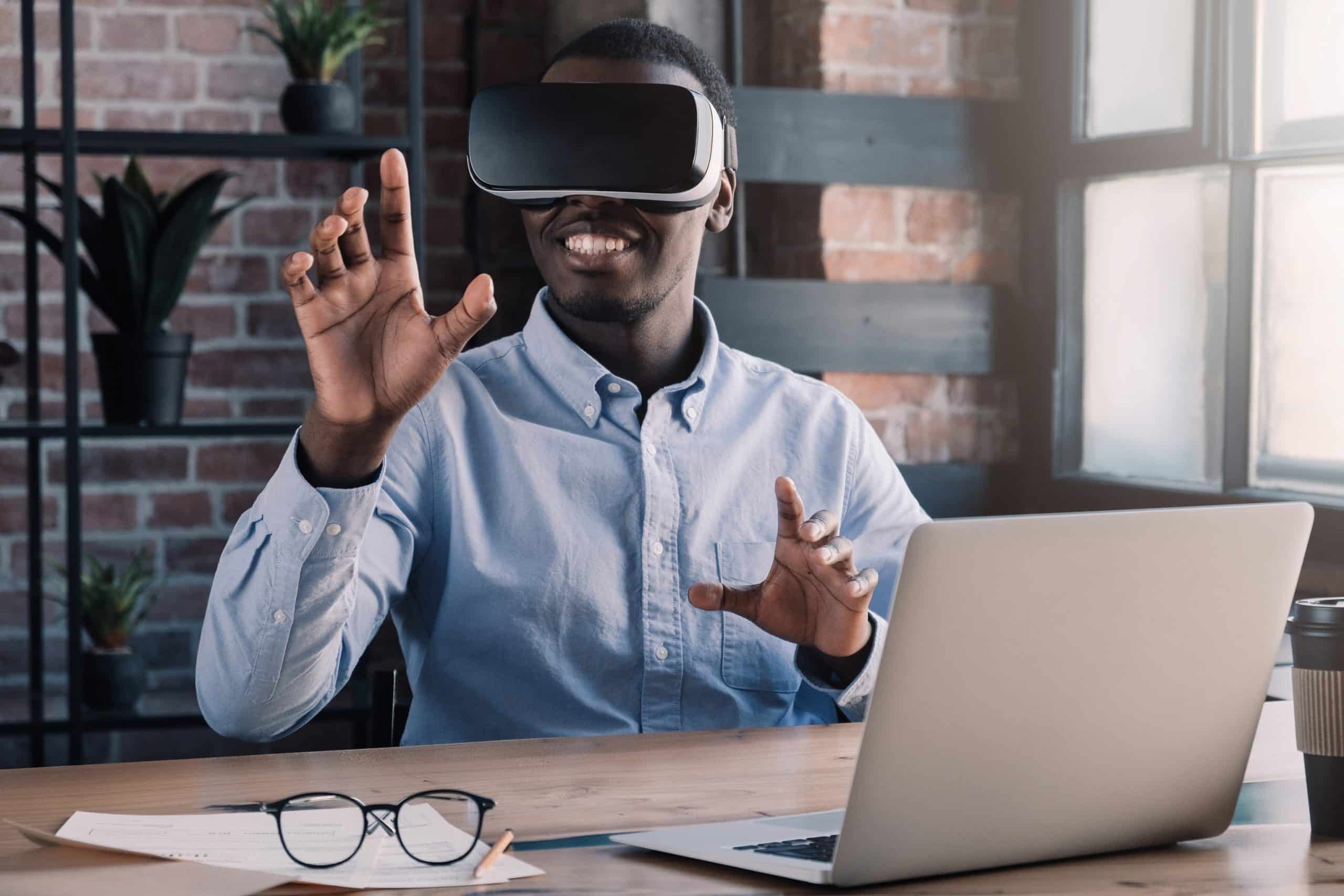How Can Real Estate Agents Leverage Augmented Reality for Remote Property Showings?

The real estate industry has always been a sector known for its dynamic nature. Adaptation to changing trends and technologies is one of its primary attributes. Still, in recent years, the industry is facing a new wave of transformation driven by advanced technologies like Augmented Reality (AR). This article will explore how real estate agents can leverage AR to offer immersive and interactive tours, enhancing the buying experience for remote clients.
Augmented Reality: A New Reality for Real Estate
The advent of Augmented Reality has opened up a world of possibilities for the real estate industry. Gone are the days when traditional marketing strategies and face-to-face property showings were the only means to attract potential buyers. With AR, real estate agents can provide a more dynamic, immersive and interactive experience, resonating with the digital-savvy generation.
En parallèle : What Regulations Affect the Development of Brownfield Sites into Sustainable Housing?
AR works by superimposing computer-generated images on a user’s view of the real world, thereby providing a composite view. It introduces virtual elements to the physical world, enhancing the perception of reality. In the context of real estate, AR can bring properties to life, allowing clients to tour them remotely in real-time, irrespective of their geographical location.
Offering Immersive Property Experiences
Through AR, you can offer your clients more than just a virtual tour of the property. You can immerse them in the reality of the property without them having to be physically present. They can explore different rooms, observe architectural details, and even visualize their own furniture in the space. This interactive engagement can significantly influence their buying decision, making them more likely to invest in the property.
Avez-vous vu cela : How to Identify and Invest in Up-and-Coming Neighbourhoods in Major UK Cities?
With AR, the potential buyers can also customize the property according to their preferences. They can change wall colors, flooring, or even layout, giving them a personalized experience. This not only helps them visualize the property as their future home but also increases their emotional attachment to it.
Capitalizing on Data with Augmented Reality
AR is not just about providing immersive experiences. It also holds significant potential in terms of data collection and analysis. By tracking the interactions of your clients during the virtual tours, you can collect valuable data about their preferences and behavior. This data can be used to optimize your marketing strategies and provide tailored services to your clients.
For instance, if the data shows that most of your clients are interested in properties with open kitchens, you can focus your marketing efforts on such properties. Or, if a particular property is not getting much attention, you can use this data to adjust its price or enhance its features.
Augmented Reality in Marketing and Sales
Augmented reality can also play a crucial role in the marketing and sales process in the real estate sector. AR can make your property listings more appealing and interactive. Instead of static images or plain text descriptions, you can provide AR experiences that allow potential buyers to virtually walk through the property. This can significantly boost the attractiveness of your listings and make them stand out in the competitive real estate market.
Furthermore, AR can also be used to showcase future developments or improvements in the property. For instance, if a property is under construction, you can use AR to show how it would look after completion. This can help potential buyers visualize the final product and make an informed decision.
Enhancing Client Relationships with Augmented Reality
The adoption of augmented reality in the real estate sector is not just about harnessing technology for the sake of it. It’s about enhancing the client experience and building long-term relationships. By leveraging AR, you can provide your clients with a level of service that goes beyond the traditional norms.
AR enables you to offer personalized and immersive experiences to your clients. It allows them to explore properties at their own pace and in their own time, without the pressure of a sales agent. This can significantly enhance their property viewing experience and make them feel valued. Ultimately, an improved client experience can lead to increased customer loyalty and repeat business.
Virtual Staging: A Game Changer in the Real Estate Industry
With the integration of augmented reality, virtual staging has become a game changer in the real estate industry. It is a digitally innovative method that allows estate agents to furnish and decorate properties virtually, enhancing the attractiveness of the property to potential buyers.
With virtual staging, you can showcase properties in their best light without any physical staging costs. Potential buyers can view the property with different styles of furniture and décor, all according to their taste. This gives them a better understanding of the space and layout of the property.
It isn’t just about adding furniture to an empty room either. You can also remove existing furniture and replace it with more appealing options. You can even modify the wall colors, floorings, and other elements as per the preference of the potential buyers. This level of customization not only appeals to potential buyers but also builds a deeper emotional connection, influencing their decision-making process.
Additionally, AR-based virtual staging can help estate agents cater to the needs of remote buyers. By providing a realistic view of the property, it ensures that buyers get a comprehensive understanding, irrespective of their location. This makes virtual tours more effective, resulting in quicker sales.
Augmented Reality: Shaping the Future Real Estate Market
Augmented Reality is more than just a technological trend. It is a tool that is rapidly shaping the future of the real estate market. With its ability to provide immersive and interactive property tours, AR is revolutionizing the way estate agents operate and how potential buyers experience property viewing.
Through AR, prospective buyers can tour properties in real time, customizing and interacting with the space as they see fit. This not only enhances the buyer’s experience but also provides estate agents with crucial data that can be used to optimize marketing strategies and services.
Moreover, AR gives estate agents a competitive edge in the real estate market. By incorporating AR in property listings and virtual tours, agents can make their listings more appealing and stand out among the rest.
In conclusion, augmented reality is proving to be an invaluable tool in the real estate industry. From providing immersive virtual tours to virtual staging, and from data collection to enhancing client relationships, AR is indeed creating a new reality for the real estate market. As more and more estate agents begin to embrace this technology, AR’s role in the real estate industry is only set to expand further.
